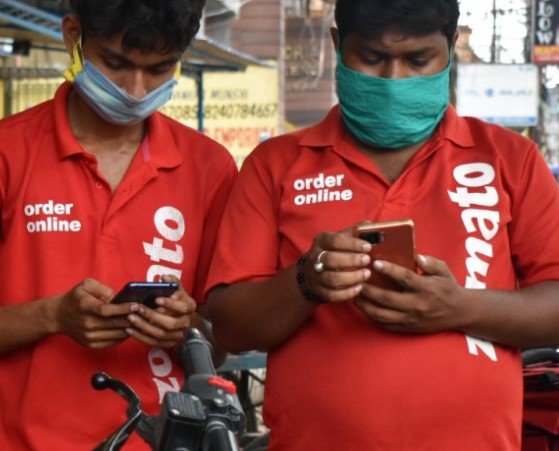In a surprising turn of events, Deepinder Goyal, the CEO of Zomato, has announced his departure from the popular reality show Shark Tank India. This development comes as Swiggy, Zomato’s main competitor in the food delivery market, steps in as the new sponsor for the show’s fourth season. Goyal, who joined Shark Tank India in its third season, quickly became a fan favorite for his insightful feedback and candid demeanor. However, Swiggy’s sponsorship deal includes a clause that bars Goyal from participating as an investor on the show.
Swiggy’s Strategic Sponsorship Move
Swiggy’s decision to sponsor Shark Tank India is seen as a strategic move ahead of its upcoming initial public offering (IPO). The company is set to invest ₹25 crore in the sponsorship deal, which is part of a broader strategy to enhance brand visibility and market presence. By becoming the primary sponsor of a high-profile show like Shark Tank, Swiggy aims to reach a wider audience and strengthen its brand image.
The sponsorship deal, however, comes with a significant stipulation: the exclusion of Deepinder Goyal from the show’s panel of investors. This move highlights the intense rivalry between Swiggy and Zomato, as both companies vie for dominance in the food delivery and quick commerce sectors. Swiggy’s sponsorship is expected to boost its brand recognition and attract more customers, especially as it prepares for its IPO.

Swiggy’s IPO plans include raising ₹5,000 crore, with a substantial portion allocated to brand marketing and awareness initiatives. The company’s focus on expanding its customer base and market reach is evident in its aggressive marketing strategies, including the Shark Tank sponsorship.
Deepinder Goyal’s Impact on Shark Tank
Deepinder Goyal’s tenure on Shark Tank India was marked by his sharp business acumen and straightforward approach. As a “Shark,” Goyal provided valuable insights to aspiring entrepreneurs and helped them navigate the challenges of building a successful business. His presence on the show was well-received by both the audience and fellow investors, making his departure a significant loss for the show’s dynamic.
Goyal’s exit from Shark Tank India underscores the competitive pressures in the food delivery industry. Despite his departure, Goyal remains focused on Zomato’s growth and expansion. Under his leadership, Zomato has achieved remarkable milestones, including a successful IPO and significant market share gains. Goyal’s contributions to the entrepreneurial ecosystem through Shark Tank have left a lasting impact, inspiring many budding entrepreneurs.
The rivalry between Swiggy and Zomato has intensified in recent years, with both companies striving to outdo each other in terms of service offerings and market penetration. Goyal’s exit from Shark Tank is a testament to the high stakes involved in this competitive landscape.
Future Prospects for Swiggy and Zomato
As Swiggy gears up for its IPO, the company is focused on reducing losses and achieving profitability. In FY24, Swiggy reported a 43% reduction in losses, bringing them down to ₹2,350 crore. This improvement is a positive sign for investors and reflects Swiggy’s efforts to streamline operations and enhance efficiency. The Shark Tank sponsorship is expected to further bolster Swiggy’s brand and attract more customers.
Zomato, on the other hand, continues to lead the market with a valuation of $25 billion, more than double Swiggy’s estimated $10 billion valuation. Zomato’s diverse revenue streams, including its B2B Hyperpure business and Blinkit, have contributed to its strong financial performance. Despite the competitive pressures, Zomato remains well-positioned to maintain its market leadership.
The departure of Deepinder Goyal from Shark Tank India marks a new chapter in the ongoing rivalry between Swiggy and Zomato. As both companies continue to innovate and expand, the competition is expected to drive further advancements in the food delivery and quick commerce sectors. The impact of Swiggy’s sponsorship on Shark Tank and Goyal’s exit will be closely watched by industry observers and consumers alike.

Comments